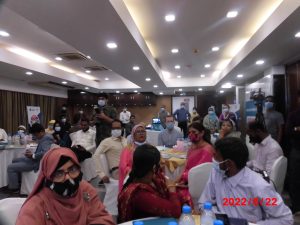Women Violence Prevention
Women Violence Prevention The Women Violence Prevention Program of SEDAD (Socio-Economic Development Association for Disabled) is dedicated to protecting women, especially those with disabilities and from marginalized communities, from all forms of violence, abuse, and discrimination. Recognizing the heightened vulnerability of women in these groups, SEDAD focuses on creating safe environments and empowering women to assert their rights. Key Activities Awareness Campaigns: Educating communities about gender-based violence, women’s rights, and the legal protections available under national law. Legal Support and Counseling: Providing access to legal aid, counseling services, and advocacy to victims of violence. Self-Defense Training: Equipping women with basic self-defense techniques to enhance personal safety and confidence. Community Engagement: Mobilizing local communities to challenge harmful cultural norms and promote gender equality. Collaboration with Authorities: Working with police, social services, and other organizations to ensure proper protection and intervention for victims. Impact Through this program, SEDAD empowers women to recognize, resist, and report violence, fosters community awareness, and contributes to creating safer, more inclusive environments. The initiative strengthens women’s autonomy and supports SEDAD’s broader mission of social justice and empowerment for marginalized groups.






